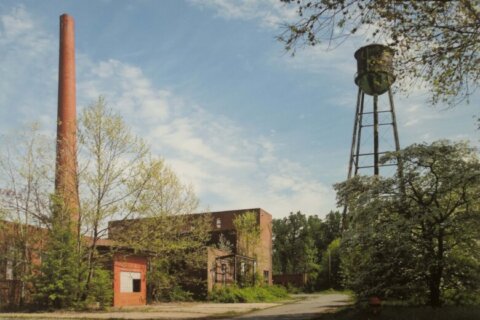MORNINGSIDE, Md. — Tuesday, April 14, marks the 150th anniversary of the assassination of President Abraham Lincoln at Ford’s Theater. To this day, a suburban Maryland family is fighting to clear its name of the infamous crime.
“I’m a defender of my great-grandfather and I believe he was totally innocent,” says Thomas Mudd, 74, of Saginaw, Michigan.
Mudd is the great-grandchild of Dr. Samuel Mudd, one of eight people convicted in 1865 of conspiring to assassinate Lincoln. Four conspirators were hanged, including Mary Surratt, the first woman ever executed by the U.S. government. Mudd and three others drew prison terms.
At the Prince George’s County home of his sister, 86-year-old Mary Mudd McHale, amid stacks of books on the Lincoln assassination, the brother and sister offer a spirited argument against the guilt of their great-grandfather. Mudd was swept up in the shocking crime after he set the broken leg of assassin John Wilkes Booth, injured in his leap from the presidential box to the stage after shooting the president at Ford’s Theatre. Making his escape from Washington by horseback, Booth arrived with his accomplice, Davy Herold, at Dr. Mudd’s Charles County home before dawn April 15.
“He could not have known about the assassination,” McHale says about her great-grandfather.
She points out that Booth wrote in his diary, found on him when he was shot by federal troops, that he had decided on Friday, April 14, to kill the president.
“There was no way to get the word down to Dr. Mudd,” says McHale.
At Mudd’s military trial in May 1865, testimony indicated that Mudd had met Booth in the fall of 1864 in Southern Maryland. They had even attended Catholic Mass together at St. Peter’s Church, near Bryantown.
“Dr. Mudd’s involvement is a little more extensive than one might hear if you went out to Charles County, Maryland, and talked to family members. He had known Booth for some time,” says history professor Terry Alford, of Northern Virginia Community College, author of “Fortune’s Fool: The Life of John Wilkes Booth.”
“This is 4 o’clock in the morning — there are no electric light. They’re working by candlelight, and according to both Dr. Mudd and Mrs. Mudd, he (Booth) didn’t speak much. He hardly spoke at all. And he was heavily made-up and he was an actor. So did Dr. Mudd know who he was? I don’t know. But even if he’d known, he certainly would not have known about the assassination,” says McHale.
Her brother, Tom, doubles down on their great-grandfather’s innocence, insisting that he not only knew nothing about the presidential assassination, but once he was made aware of it, he assisted federal troops in their search for Booth.
“Without Dr. Mudd’s intelligence John Wilkes Booth most likely would have escaped. They never would have gotten him. They didn’t know he had a broken leg. They had no idea which direction he was going. Dr. Mudd should have been a hero. He should not have been convicted and sent to prison for life,” says Mudd.
Tom and Mary’s late father, Dr. Richard Mudd, of Saginaw, Michigan, fought valiantly his entire life to clear his grandfather’s name. He died in 2002 at age 101. The family was in federal appeals court in 2003 seeking standing in a lawsuit alleging that Samuel Mudd should not have been tried by a military commission.
The great-grandchildren agree that winning justice for Mudd was a driving force in their father’s life, and they are carrying it on. They both believe their father tried to overcome family anguish that had an embittering effect on his father, Thomas, who was Samuel Mudd’s oldest son, and was home when federal troops came to arrest his father, the accused Lincoln conspirator.
“This was a stigma in the family,” Mudd says.
“Really, the family was destroyed, and that comes to me sometimes. I think about that. These were my grandparents and look what happened to them,” McHale says.
Mudd was sentenced to life in prison at Fort Jefferson in the Dry Tortugas, Florida.
When yellow fever swept the prison in 1867 killing the prison’s doctor, Mudd stepped into the breach and is credited with saving many lives. Two years later, President Andrew Johnson pardoned Mudd, releasing him from prison. Mudd died of pneumonia in 1883 at age 49.
He’s never been cleared of his conviction as a Lincoln assassination conspirator.
Ford’s Theatre is conducting an all-night candlelight vigil starting at 10:15 p.m. Tuesday, April 14, marking the 150th anniversary of the Lincoln assassination.
On April 18 and April 19, there will be living history exhibits and Civil War re-enactors at the Dr. Mudd House Museum in Waldorf, Maryland. The Port Tobacco Players will present the play “The Assassin’s Doctor.”
On July 24, marking the 150th anniversary of their ancestor’s arrival at Fort Jefferson prison, at least 50 Mudd family members will reunite at Fort Jefferson, which is now a national park. They plan to wear “Free Dr. Mudd” T-shirts.








